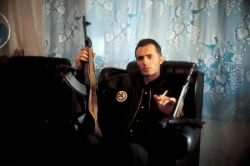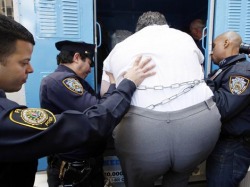Mafia and the Law of RICO

One of the American Government's most important tool in the fight against the Mafia and organized crime in general is RICO. RICO isn't a military wing or special police branch . It is a law - the Racketeer Influenced and Corrupt Organizations (RICO) Act, Title 18, United States Code, Sections 1961-1968. It was passed in the year 1970 specifically with the intentions to help fight the Mafia. It does this by enabling prosecutors and the law to go after entire organizations instead of just individuals.
Racketeering is making money through an unlawful enterprise. Almost any crime falls under racketeering. Under RICO, a person who is a member of an enterprise that has committed any two of 35 crimes—27 federal crimes and 8 state crimes—within a 10-year period can be charged with racketeering. Those found guilty can be fined up to $25,000 and/or sentenced up to 20 years in prison per racketeering count. In addition, all the cash earned through the racket has to be forfeited and is confiscated by the government. It provides for extended penalties for criminal acts performed -- for example, bribing a union leader, killing an uncooperative business owner and extorting money, all of them add up to racketeering. Furthermore, members of the Mafia may be prosecuted for racketeering even if they weren't specifically involved in individual crimes. This removed one of the most common and basic defense tactics of Mafia Dons. They used to send low-level soldiers and new-recruits to commit the actual crimes so they themselves could never be prosecuted.

Under the law, racketeering activity means:
1. Any violation of state statutes against gambling, murder, kidnapping, arson, robbery, bribery, extortion, dealing in obscene matter, or dealing in a controlled substance or listed chemical (as defined in the Controlled Substances Act);
2. Any act of bribery, counterfeiting, theft, embezzlement, fraud, dealing in obscene matter, obstruction of justice, slavery, racketeering, gambling, money laundering, commission of murder-for-hire, and several other offenses covered under the Federal criminal code (Title 18);
3. Embezzlement of union funds;
4. Bankruptcy or securities fraud;
5. Drug trafficking;
6. Money laundering and related offenses;
7. Bringing in, aiding or assisting aliens in illegally entering the country (if the action was for financial gain);
8. Acts of terrorism.
RICO was the biggest blow to the Mafia and caused it immense damage. In many cases, the threat of a RICO indictment forced defendant Mafia members to plead guilty to lesser charges because the seizure of assets would have made it difficult to pay for a lawyer. Despite its harsh provisions, a RICO-related charge is comparatively much easier to prove in court, as it focuses on patterns of behavior as opposed to criminal acts.
